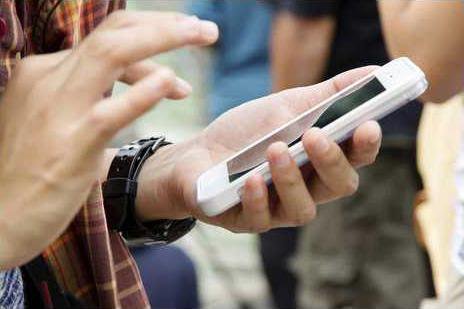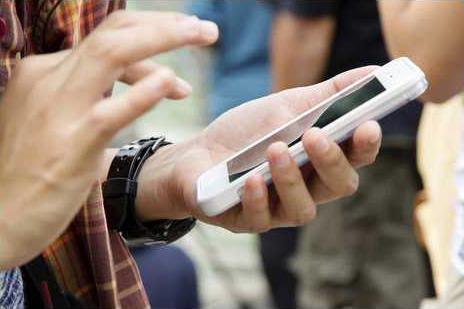While millions of people choose relaxing in front of the TV, computer or smartphone screen after a long day at work, a new study finds that might cause the opposite feeling.
A European study published this week in the Journal of Communication screened 471 subjects about how they felt at the end of their work day and what media they engaged with. As The Independent reported, participants who felt especially tired resorted to using media and reported that they felt they'd procrastinated more important tasks. This led them to feel like failures, which resulted in further anxiety.
The study confirms what some have urged all along: Technology might make some things easier, but too much engagement with devices might be harmful. Take comedienne Charlene deGuzman, whose video titled "I forgot my phone," went viral this year. In it, deGuzman is put in a variety of social situations that are ruined by the people around her being too absorbed in their devices. Many sites, like Upworthy, said deGuzman shed a light on a rising social issue nearly everyone is guilty of.
The Huffington Post urged readers earlier this year to put down their smartphones and talk to strangers, citing a book that argued that people who were socially engaged were happier than people who texted in solitude.
Writer Jessi Hemple quit social media in 2013 for a series of Fortune articles, arguing that Americans simply need to unplug until they can figure out the what's healthy and what's not.
"I don’t remember what my life was like before I had a profile pic. Much as with any other technology, we need to figure out how to integrate social services into our lives," Hemple wrote. "Remember when we all got cell phones in the mid-90s? For several years, we let them ring in restaurants and movie theaters and answered them mid-conversation before we developed a set of cultural norms around how to use them. This set of culture norms is harder to pin down with social services since the services themselves are evolving so quickly."
ARTICLE ENDNOTE: Email: chjohnson@deseretnews.com
Twitter: ChandraMJohnson
Staring at screens raises guilty feelings, study finds





